 W
WAlbertus Magnus, also known as Saint Albert the Great and Albert of Cologne, was a German Catholic Dominican friar and bishop. Later canonised as a Catholic saint, he was known during his lifetime as Doctor universalis and Doctor expertus and, late in his life, the sobriquet Magnus was appended to his name. Scholars such as James A. Weisheipl and Joachim R. Söder have referred to him as the greatest German philosopher and theologian of the Middle Ages. The Catholic Church distinguishes him as one of the 36 Doctors of the Church.
 W
WJohann Heinrich Alsted, "the true parent of all the Encyclopædias", was a German-born Transylvanian Saxon Calvinist minister and academic, known for his varied interests: in Ramism and Lullism, pedagogy and encyclopedias, theology and millenarianism. His contemporaries noted that an anagram of Alstedius was sedulitas, meaning "hard work" in Latin.
Carl Philipp Emanuel Bach, also formerly spelled Karl Philipp Emmanuel Bach, and commonly abbreviated C. P. E. Bach, was a German Classical period musician and composer, the fifth child and second surviving son of Johann Sebastian Bach and Maria Barbara Bach. His second name was given in honor of his godfather Georg Philipp Telemann, a friend of Johann Sebastian Bach.
 W
WMartin Traugott Wilhelm Blumner was a German composer, conductor and music theorists. He was the younger brother of the Berlin-born pianist and composer Sigismund Blumner (1826–1893).
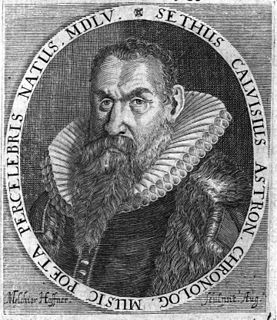 W
WSethus Calvisius or Setho Calvisio, originally Seth Kalwitz, was a German music theorist, composer, chronologer, astronomer, and teacher of the late Renaissance.
 W
WJohann Cochlaeus (Cochläus) was a German humanist, music theorist, and controversialist.
 W
WJohann Crüger is known as a German composer of well-known hymns. In reality, he was an ethnic Sorb, baptized as Jan Krygar. He was also the editor of the most widely used Lutheran hymnal of the 17th century, Praxis pietatis melica.
 W
WCarl Czerny was an Austrian composer, teacher, and pianist of Czech origin whose vast musical production amounted to over a thousand works. His books of studies for the piano are still widely used in piano teaching. He was one of Beethoven's numerous pupils.
 W
WSiegfried Wilhelm (von) Dehn was a German music theorist, editor, teacher and librarian.
 W
WReinhard Febel is a German composer, notable for his operas. He is also a music theorist and a university professor at the Hochschule für Musik, Theater und Medien Hannover and the Mozarteum.
 W
WJohann Nikolaus Forkel was a German musician, musicologist and music theorist.
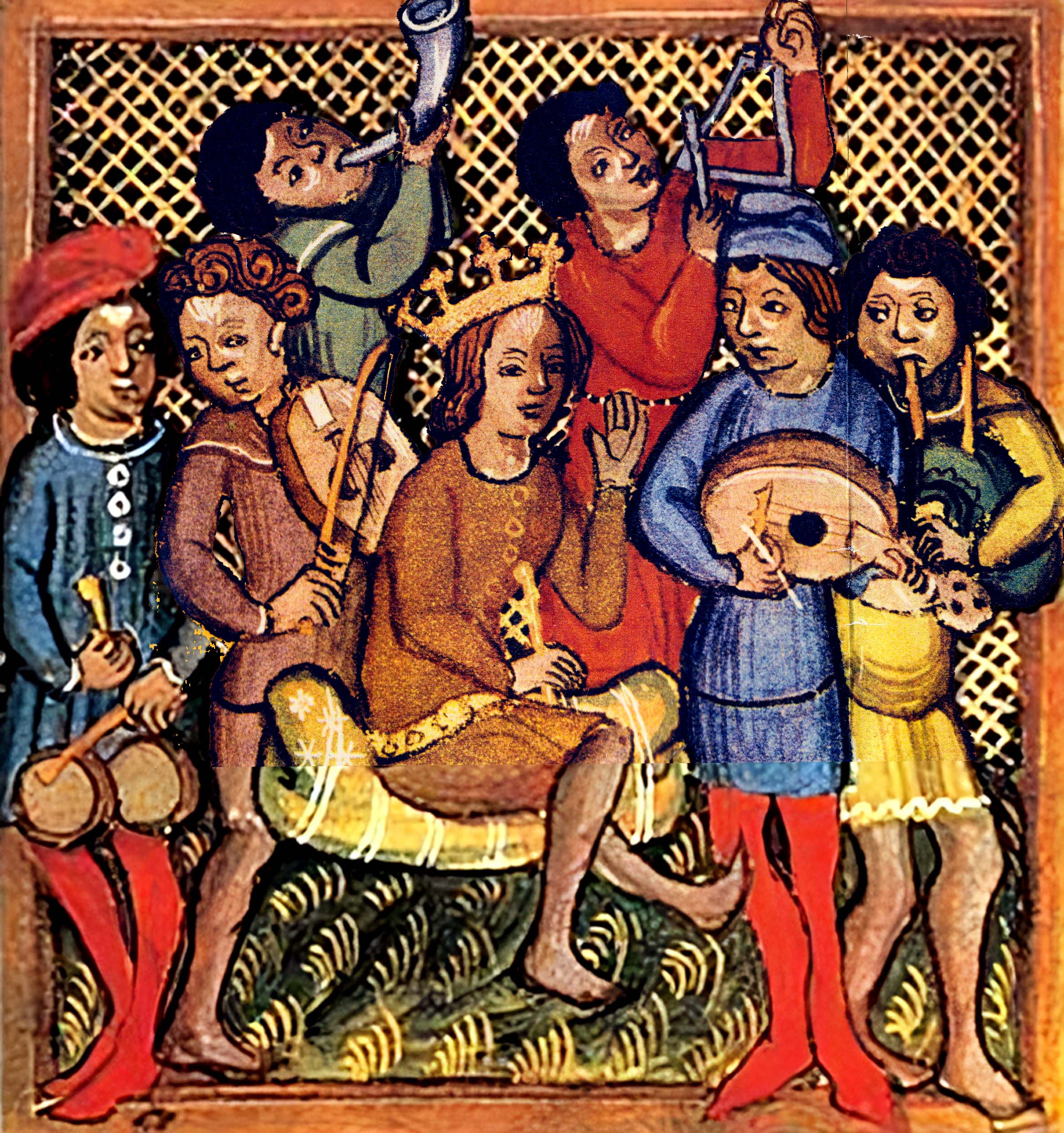 W
WFranco of Cologne was a German music theorist and possibly a composer. He was one of the most influential theorists of the late Medieval era, and was the first to propose an idea which was to transform musical notation permanently: that the duration of any note should be determined by its appearance on the page, and not from context alone. The result was Franconian notation.
 W
WAdam Gumpelzhaimer, also Adam Gumpeltzhaimer was a Bavarian composer and music theorist. Born in Trostberg, he studied music with the monk Jodocus Enzmüller. In 1581 he became cantor at the Augsburg Cathedral; a post he maintained until his death there in 1625. He is best known for his compositions of sacred music. He was also a noted collector of the works of Hans Leo Hassler, amassing the largest known collection of Hassler's manuscripts and prints.
 W
WMoritz Hauptmann, was a German music theorist, teacher and composer.
 W
WJohann David Heinichen was a German Baroque composer and music theorist who brought the musical genius of Venice to the court of Augustus II the Strong in Dresden. After he died, Heinichen's music attracted little attention for many years.
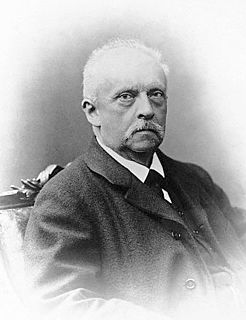 W
WHermann Ludwig Ferdinand von Helmholtz was a German physicist and physician who made significant contributions in several scientific fields. The largest German association of research institutions, the Helmholtz Association, is named after him.
 W
WJohann Andreas Herbst was a German composer and music theorist of the early Baroque era. He was a contemporary of Michael Praetorius and Heinrich Schütz, and like them, assisted in importing the grand Venetian style and the other features of the early Baroque into Protestant Germany.
 W
WBlessed Hermann of Reichenau, also known by other names, was an 11th-century Benedictine monk and scholar. He composed works on history, music theory, mathematics, and astronomy, as well as many hymns. He has traditionally been credited with the composition of "Salve Regina", "Veni Sancte Spiritus", and "Alma Redemptoris Mater", although these attributions are sometimes questioned. His cultus and beatification were confirmed by the Roman Catholic Church in 1863.
 W
WSebald Heyden was a German musicologist, cantor, theologian, hymn-writer and religious poet. He is perhaps best known for his De arte canendi which is considered to have had a major impact on scholarship and the teaching of singing to young boys. It has been speculated that Heyden was the world's first true musicologist.
 W
WSalomon Jadassohn was a German pianist, composer and a renowned teacher of piano and composition at the Leipzig Conservatory.
 W
WJohannes Kepler was a German astronomer, mathematician, and astrologer. He is a key figure in the 17th-century scientific revolution, best known for his laws of planetary motion, and his books Astronomia nova, Harmonices Mundi, and Epitome Astronomiae Copernicanae. These works also provided one of the foundations for Newton's theory of universal gravitation.
 W
WAthanasius Kircher was a German Jesuit scholar and polymath who published around 40 major works, most notably in the fields of comparative religion, geology, and medicine. Kircher has been compared to fellow Jesuit Roger Boscovich and to Leonardo da Vinci for his enormous range of interests, and has been honoured with the title "Master of a Hundred Arts". He taught for more than 40 years at the Roman College, where he set up a wunderkammer. A resurgence of interest in Kircher has occurred within the scholarly community in recent decades.
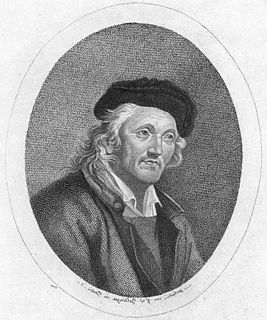 W
WJohann Philipp Kirnberger was a musician, composer, and music theorist. He was a student of Johann Sebastian Bach.
 W
WCyrill Kistler was a German composer, music theoretician, Music educator and Music publisher.
 W
WWilhelm Klatte was a German music theoretician, pedagogue, journalist and conductor.
 W
WJustinus or Justin Heinrich Knecht was a German composer, organist, and music theorist.
 W
WStephan Krehl was a German composer, teacher, and theoretician. His writings include Traité général de la musique and Théorie de la musique et de science de la composition; and his important pupils include the Spanish composer Pablo Sorozábal.
 W
WJohann Kuhnau was a German polymath, known primarily as composer today. He was also active as a novelist, translator, lawyer, and music theorist, and was able to combine these activities with his duties in his official post as Thomaskantor in Leipzig, which he occupied for 21 years. Much of his music, including operas, masses, and other large-scale vocal works, is lost. His reputation today rests on his Biblical Sonatas, a set of programmatic keyboard sonatas published in 1700, in which each sonata depicted in detail a particular story from the Bible. After his death, Kuhnau was succeeded as Thomaskantor by Johann Sebastian Bach.
 W
WNotker Labeo, also known as Notker the German or Notker III, was a Benedictine monk and the first commentator on Aristotle active in the Middle Ages. "Labeo" means "the thick-lipped one". Later he was named Teutonicus in recognition of his services to the German language.
 W
WGottfried Wilhelm (von) Leibniz was a prominent German polymath and one of the most important logicians, mathematicians and natural philosophers of the Enlightenment. As a representative of the seventeenth-century tradition of rationalism, Leibniz developed, as his most prominent accomplishment, the ideas of differential and integral calculus, independently of Isaac Newton's contemporaneous developments. Mathematical works have consistently favored Leibniz's notation as the conventional expression of calculus. It was only in the 20th century that Leibniz's law of continuity and transcendental law of homogeneity found mathematical implementation. He became one of the most prolific inventors in the field of mechanical calculators. While working on adding automatic multiplication and division to Pascal's calculator, he was the first to describe a pinwheel calculator in 1685 and invented the Leibniz wheel, used in the arithmometer, the first mass-produced mechanical calculator. He also refined the binary number system, which is the foundation of nearly all digital computers, including the Von Neumann machine, which is the standard design paradigm, or "computer architecture", followed from the second half of the 20th century, and into the 21st.
 W
WJohann Christian Lobe was a German composer and music theorist.
 W
WJohann Bernhard Logier was a German composer, teacher, inventor, and publisher resident in Ireland for most of his life.
 W
WRudolf Louis was a German music critic and conductor.
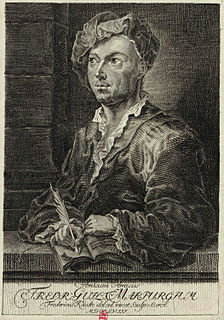 W
WFriedrich Wilhelm Marpurg was a German music critic, music theorist and composer. He was friendly and active with many figures of the Enlightenment of the 18th century.
 W
WFriedrich Heinrich Adolf Bernhard Marx was a German musicologist.
 W
WJohann Mattheson was a German composer, singer, writer, lexicographer, diplomat and music theorist.
 W
WLorenz Christoph Mizler von Kolof was a German physician, historian, printer, mathematician, Baroque music composer, and precursor of the Polish Enlightenment.
 W
WJohann Georg Leopold Mozart was a German composer, conductor, music teacher, and violinist. Mozart is best known today as the father and teacher of Wolfgang Amadeus Mozart, and for his violin textbook Versuch einer gründlichen Violinschule.
 W
WArthur Joachim von Oettingen was a Baltic German physicist and music theorist. He was the brother of theologian Alexander von Oettingen (1827–1905) and ophthalmologist Georg von Oettingen (1824–1916).
 W
WJohann Christoph Pepusch, also known as John Christopher Pepusch and Dr Pepusch, was a German-born composer. He spent most of his working life in England.
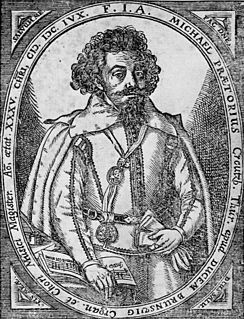 W
WMichael Praetorius was a German composer, organist, and music theorist. He was one of the most versatile composers of his age, being particularly significant in the development of musical forms based on Protestant hymns.
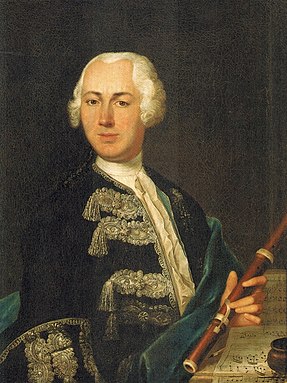 W
WJohann Joachim Quantz was a German flutist, flute maker and Baroque music composer. He composed hundreds of flute sonatas and concertos, and wrote On Playing the Flute, a treatise on flute performance. His works were known and appreciated by Bach, Haydn and Mozart.
 W
WRegino of Prüm or of Prum was a Benedictine monk, who served as abbot of Prüm (892–99) and later of Saint Martin's at Trier, and chronicler, whose Chronicon is an important source for late Carolingian history.
 W
WGeorg Rhau (Rhaw) was a German publisher and composer. He was one of the most significant music printers in Germany in the first half of the 16th century, during the early period of the Protestant Reformation. He was principally active in Wittenberg, Saxony, the town where Martin Luther is said to have nailed the Ninety-five Theses to the door of the Castle Church, initiating the Reformation. Rhau's support as a printer was critical to Luther's success.
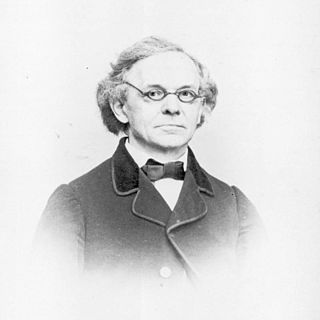 W
WErnst Friedrich Eduard Richter, was a German musical theorist, born at Großschönau, Saxony.
 W
WKarl Wilhelm Julius Hugo Riemann was a German music theorist and composer.
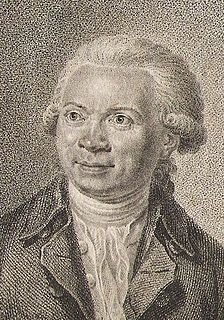 W
WJohann Abraham Peter Schulz was a German musician. He is best known as the composer of the melody for Matthias Claudius's poems "Der Mond ist aufgegangen" and "Wir pflügen und wir streuen", and the Christmas carol "Ihr Kinderlein kommet".
 W
WCarl Stumpf was a German philosopher and psychologist. He studied with Franz Brentano at the University of Würzburg before receiving his doctorate at the University of Göttingen in 1868. He also tutored the modernist literature writer Robert Musil at the University of Berlin, and worked with Hermann Lotze, who is famous for his work in perception, at Göttingen. Stumpf is known for his work on the psychology of tones. He had an important influence on his students Wolfgang Köhler and Kurt Koffka who were instrumental in the founding of Gestalt psychology as well as Kurt Lewin, who was also a part of the Gestalt group and was key in the establishment of experimental social psychology in America. Stumpf is considered one of the pioneers of comparative musicology and ethnomusicology, as documented in his study of the origins of human musical cognition The Origins of Music (1911). He held positions in the philosophy departments at the Universities of Göttingen, Würzburg, Prague, Munich and Halle, before obtaining a professorship at the University of Berlin.
 W
WJohann Georg Sulzer was a Swiss professor of Mathematics, who later on moved on to the field of electricity. He was a Wolffian philosopher and director of the philosophical section of the Berlin Academy of Sciences, and translator of David Hume's An Enquiry Concerning the Principles of Morals into German in 1755.
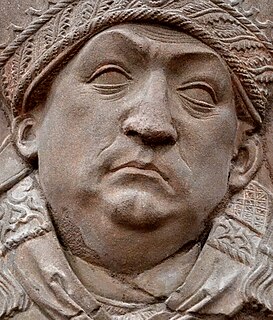 W
WRutgerus Sycamber or Roger of Venray was a humanist, music theorist, and a prolific but little-published writer. He was a canon regular of the Augustinian Order based for most of his life at the monastery of Hagen near Worms.
 W
WGeorg Philipp Telemann was a German Baroque composer and multi-instrumentalist. Almost completely self-taught in music, he became a composer against his family's wishes. After studying in Magdeburg, Zellerfeld, and Hildesheim, Telemann entered the University of Leipzig to study law, but eventually settled on a career in music. He held important positions in Leipzig, Sorau, Eisenach, and Frankfurt before settling in Hamburg in 1721, where he became musical director of that city's five main churches. While Telemann's career prospered, his personal life was always troubled: his first wife died less than two years after their marriage, and his second wife had extramarital affairs and accumulated a large gambling debt before leaving him.
 W
WLudwig Wilhelm Andreas Maria Thuille was an Austrian composer and teacher, numbered for a while among the leading operatic composers of the so-called Munich School of composers, whose most famous representative was Richard Strauss.
 W
WDaniel Gottlob Türk was a German composer, organist, and music professor of the Classical period.
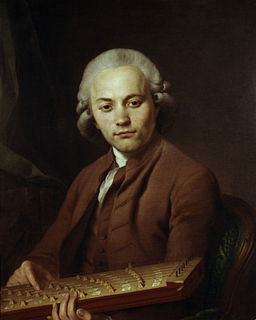 W
WGeorg Joseph Vogler, also known as Abbé Vogler, was a German composer, organist, teacher and theorist. In a long and colorful career extending over many more nations and decades than was usual at the time, Vogler established himself as a foremost experimenter in baroque and early classic music. His greatest successes came as performer and designer for the organ at various courts and cities around Europe, as well as a teacher, attracting highly successful and devoted pupils such as Carl Maria von Weber. His career as a music theorist and composer however was mixed, with contemporaries such as Mozart believing Vogler to have been a charlatan. Despite his mixed reception in his own life, his highly original contributions in many areas of music and influence on his pupils endured, and combined with his eccentric and adventurous career, prompted one historian to summarize Vogler as "one of the most bizarre characters in the history of music".
 W
WJohann Gottfried Walther was a German music theorist, organist, composer, and lexicographer of the Baroque era.
 W
WJacob Gottfried Weber, was a prominent German writer on music, composer, and jurist.
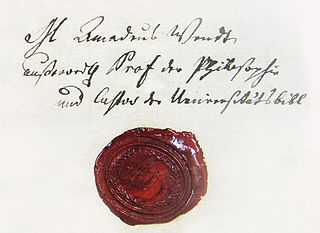 W
WJohann Amadeus Wendt was a German philosopher and music theorist.
 W
WRudolf Westphal was a German classical scholar.
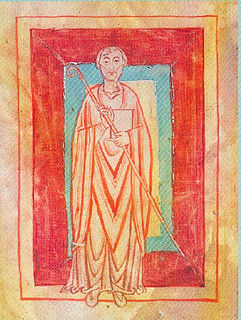 W
WWilliam of Hirsau was a Benedictine abbot and monastic reformer. He was abbot of Hirsau Abbey, for whom he created the Constitutiones Hirsaugienses, based on the uses of Cluny, and was the father of the Hirsau Reforms, which influenced many Benedictine monasteries in Germany. He supported the papacy in the Investiture Controversy. In the Roman Catholic Church, he is a Blessed, the second of three steps toward recognition as a saint.
 W
WBernhard Ziehn was a German-American music theorist and music teacher.